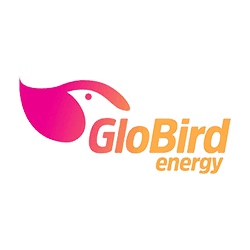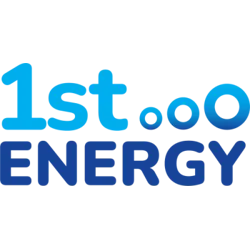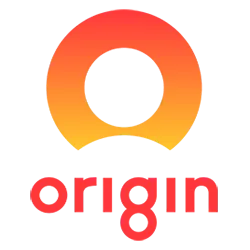
23% less than reference price
Basic Plan Information
Take the sting out of your bills. These providers are offering the cheapest NSW electricity plans in February 2026.

23% less than reference price
Basic Plan Information

22% less than reference price
Basic Plan Information

Sunrise Residential Single Rate
21% less than reference price
Basic Plan Information
Don't sleep on these providers. They're offering the cheapest NSW gas plans in February 2026.

Basic Plan Information

Basic Plan Information

Basic Plan Information
Shopping around to save money on a necessity? We get it, it's not ideal.
But whether you're opposed to it or not, NSW has a competitive energy market and plenty of providers, meaning switching around can stop you from spending hundreds of extra dollars.
For example, there's around a $460 annual price difference between the cheapest and most expensive single-rate electricity plan on Finder.
Some other not-so-obvious reasons to compare energy plans include:
When comparing electricity or gas plans from different providers, you'll want to look at a few crucial plan details:
While comparing discounts and usage rates is helpful, it also pays to understand the type of tariffs available to you. These will determine how much you're charged for your energy usage.
Households in NSW have access to the following tariffs:
There are two types of gas tariffs floating in NSW, though their availability can vary between providers:
Finder compares some of the most popular energy providers in NSW including the big three: AGL, EnergyAustralia and Origin Energy.
To make it easier, we've broken our lists for electricity and gas into two, but you'll notice some retailers offer plans for both. They're known as dual-fuel providers.
Every retailer will charge a slightly different usage rate.
The average price of electricity hovers around 37.98 cents per kilowatt-hour (kWh), based on single rate tariff plans in our database.
Gas costs between 3.53 cents and 5.23 cents per megajoule or MJ.
Gas plans normally come with stepped rates, meaning the price can vary based on your energy consumption through the month or quarter.
Supply charges for energy will vary depending on your energy distributor and can cost around 139.17 cents for electricity and 77.73 cents for gas.
Struggling with your energy bills? You might be eligible for one or more energy rebates or concessions such as:
For more information, you can check out our in-depth guide to energy rebates and concessions. Alternatively, call your energy provider and they'll be able to help you out.
The federal government is giving $150 in energy bill relief for all Australian households, including those in NSW.
The bill relief will be paid in $75 quarterly instalments from 1 July 2025. Luckily, there's no paperwork for you to worry about unless you live in an embedded network, in which case you will need to apply for the bill relief via the state government's website.
This rebate follows the handed down in the 2024 federal budget to all Aussie households.
NSW deregulated electricity prices in 2014 and gas prices in 2017.
This means retailers can set their own prices.
However, the Australian Energy Regulator does lay down benchmark electricity prices (also known as the reference price) on 1 July each year.
This allows consumers to compare prices from retailers who must show how their plan stacks up against the reference price. For example, if a retailer offers a 20% discount, this is 20% off the reference price.
Australia's focus on renewable energy and 2030 clean energy target is not lost in NSW, even though the state is lagging compared to other parts of the country.
However, there are now more than a million homes in the state with rooftop solar panels installed and the state.
If you don't have rooftop solar but would like to support clean energy initiatives, you could sign up with an energy retailer offering a little something extra for the environmentally conscious.
GreenPower: Your electricity retailer can't send renewable energy directly from the grid to your home. That's where GreenPower comes into play. It's a government-run program that allows energy retailers to buy renewable energy according to your usage, ranging from 10% to 100%. It's available as an add-on at an additional cost.
Carbon neutral plans: Don't want to spend extra money? Your energy provider will offset the carbon emissions that result from your electricity or gas usage. Some electricity plans will mention they're 100% carbon neutral, others offer it as a feature for a small fee.

"When I was looking for an energy provider before moving into my new home I was curious to see if there were features and benefits I could compare between providers alongside the general price and rates. Turns out there are quite a lot of added benefits to consider. I ended up going with Red Energy as they offered bonus Qantas Frequent Flyer points upon sign-up and 2 points for every dollar spent on my bill. I love collecting Qantas points so this was a great option for me"
Energy giants are asking for the Solar Sharer offer to be delayed.
Arcline by RACV offers electricity plans to Victorians that can be carbon offset. Find out if the energy provider matches your requirements.
Nectr has appealingly low fixed rates for the 12 months after sign up. As a bonus, your energy plan is 100% carbon neutral at no extra cost to you.
Find out if OVO Energy’s electricity or solar plans are worth signing up to.
We’ll help you decide if Jacana Energy is right for your household or business.
Find out if having access to wholesale power rates through Amber Electric is right for you.
Buy your electricity with Powershop and get flexible power options, green-friendly energy and online discounts.
Qantas Frequent Flyers may want to take advantage of the points offers but the prices aren’t the cheapest.
Our verdict: Momentum Energy is a solid option if you’re searching for a green energy provider as well as reasonably priced plans in NSW, VIC, SA or QLD.
Tasmania-based Aurora Energy is a good choice for those looking for a small energy provider that offers some useful discounts and is fully GreenPower accredited.